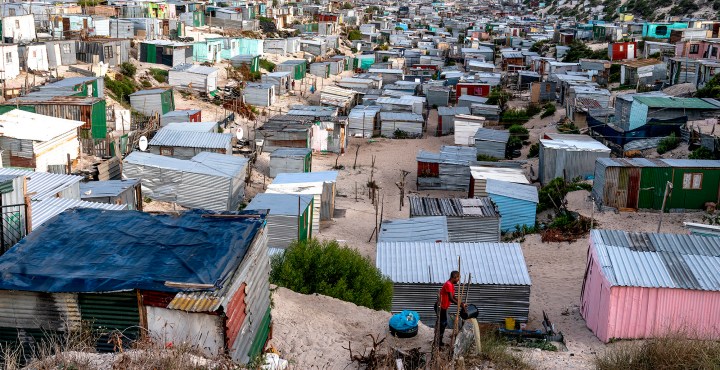HOUSING CRISIS
Government should not subsidise homeowners building rental accommodation, report recommends

A new report recommends that the government should give municipalities grants to better support homeowners providing small-scale rental units, instead of giving homeowners subsidies. This comes after the City of Cape Town adopted a report recommending that the government should subsidise homeowners providing small-scale rental units.
While the City of Cape Town has asked the national government to subsidise homeowners providing small-scale rental units, the Centre for Development and Enterprise (CDE), an independent policy research and advocacy organisation, recommends that grants should be given to municipalities instead.
Giving individuals subsidies would interfere with the dynamic markets that allow small entrepreneurs to deliver affordable housing, said CDE executive director Ann Bernstein at a webinar on Tuesday, where the CDE’s report on how government and metros can better support small-scale entrepreneurs was launched.
“Instead of this approach, government funds should be directed towards municipalities to enable them to upgrade infrastructure (engineering and social) to support higher levels of density,” reads the report.
The report recommends that the government should introduce a national conditional grant for South African cities, which funds:
- The provision of free service connections;
- The waiving of bulk infrastructure contributions;
- The expansion and upgrading of the bulk infrastructure and local infrastructure reticulation (eg, sewage, water, electricity, safe roads and secure buildings).
- The development of programmes supporting municipalities with reconfiguring planning and building compliance requirements; and
- The incentivisation of owners and enterprise developers to undertake “massive small” housing projects in targeted areas of the cities (to be explicitly identified and designated in the adjusted Spatial Development Framework).
Two weeks ago the City of Cape Town’s council adopted a report that recommends incentives such as subsidies for private property owners to provide affordable small-scale rental units.
According to the City of Cape Town’s Human Settlements Strategy, 230,000 households in Cape Town live in informal dwellings. By 2028 it is estimated that more than 500,000 households in the city will require additional housing.
The report the city adopted, which came from the city’s Spatial Planning and Environment Committee, looked at small-scale rental units in the Khayelitsha suburbs of Mandela Park, Graceland, Khaya, Eyethu and Ilitha Park.
The report found that 7,425 additional housing opportunities had been provided on 5,294 properties, out of a total of 9,007 properties. Of the 7,425 opportunities, nearly 40% are formal additional housing structures.
According to Urban LandMark, which researches tenure security, small-scale rentals are “different types of housing units built by a private landowner for rental to one or a few households”.
Urban LandMark found that 35% of South Africans who rent property live in small-scale rental units.
“Contrary to popular belief, 53% of all small-scale rental units are formally constructed houses, flats or rooms, while 47% are shacks in backyards.”
During the webinar, Matthew Nell, from Shisaka, a development management consultancy that specialises in targeted support services in housing and infrastructure, said that providing small-scale rental units was important because it often considered poor people’s ability to pay rent. “[Small-scale rental entrepreneurs] deliver the cheapest rental accommodation in the housing market. In Soweto, there are places where you pay R600 rent,” said Nell.
But housing activists have accused the City of Cape Town of perpetuating spatial inequality. When the city adopted the report to give incentives to homeowners providing small-scale rental units, Axolile Notywala, an activist and member of the Khayelitsha Community Action Network, said: “The city is trying to do away with building social and affordable housing in the CBD. If they were doing this, then people wouldn’t feel the need to rent out their backyards.”
According to the CDE’s report: “[Small-scale rental entrepreneurs] are motivated by profit and are responding to a recognised demand. This generates substantial small business activity that in turn creates jobs and income in low and middle-income areas.”
South Africa doesn’t spend enough time thinking about our cities. It’s not just about “what do we do with poor people, we also need to ask, how do we build inclusive cities?” said Bernstein. DM


















 Become an Insider
Become an Insider
Comments - Please login in order to comment.